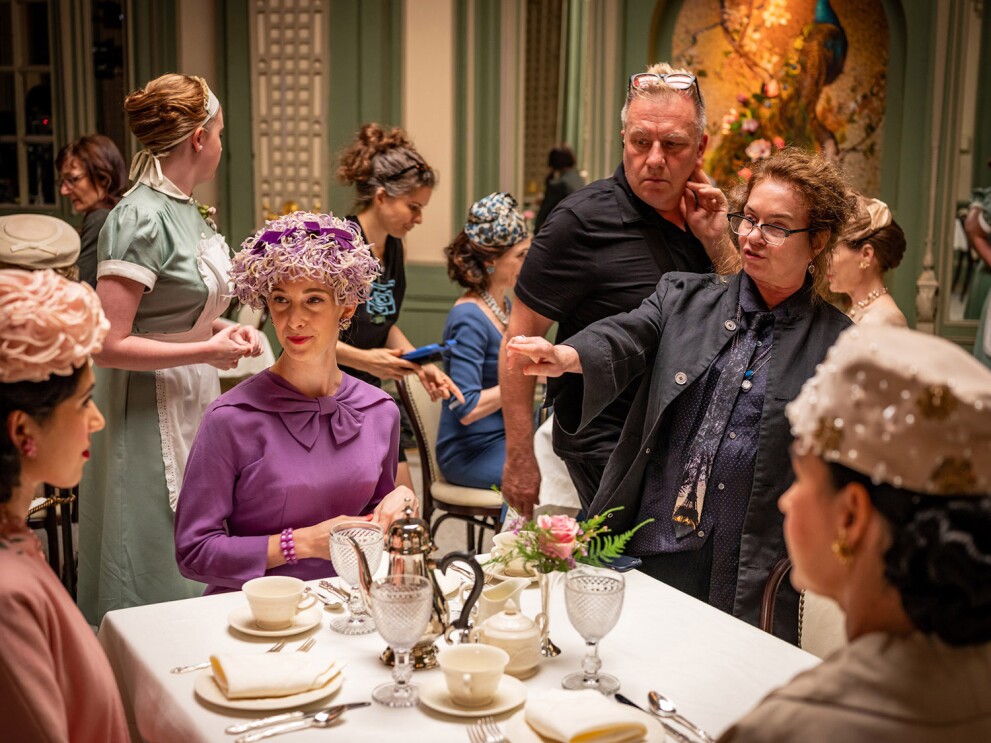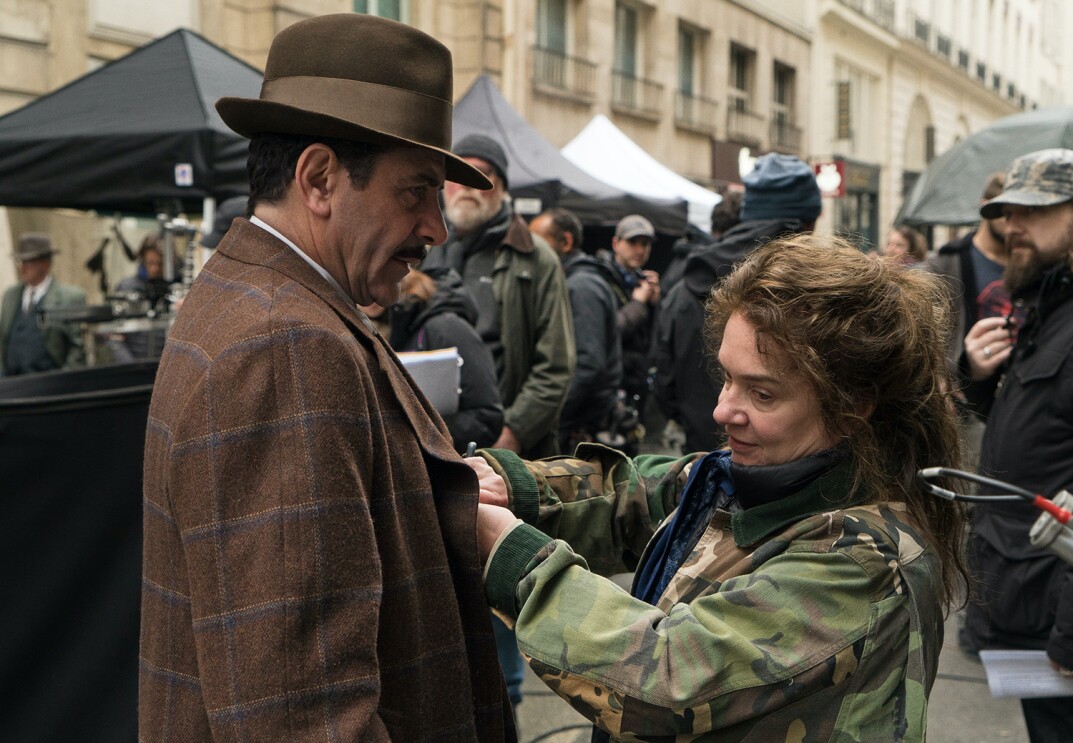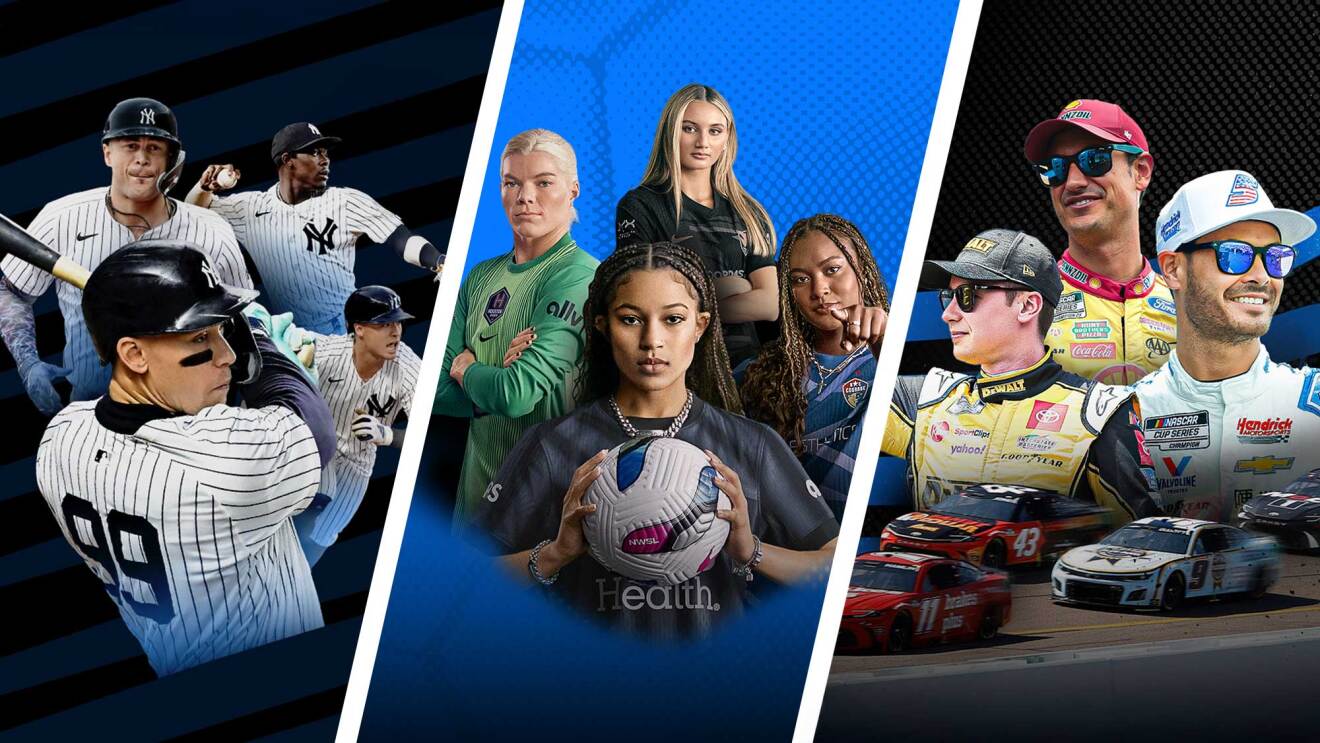Millions of viewers fell in love with “Midge”—Miriam Maisel—when The Marvelous Mrs. Maisel debuted on Prime Video in 2017. Played by actress Rachel Brosnahan, Mrs. Maisel has captivated audiences as she set out to conquer the 1950s comedy scene—armed with a razor-sharp wit, unrelenting optimism, and a marvelous wardrobe, crafted by two-time Emmy award-winning designer Donna Zakowska.
“I used color to depict [Midge’s] emotional landscape and give emphasis to moments in which she needed to be particularly comic or heroic or even proactive,” Zakowska wrote in her book Madly Marvelous: The Costumes of the Marvelous Mrs. Maisel. “I started to refer to her coats as ‘multi-colored armor.' I considered [them] to be the equivalent of a superhero cape—transfiguring, protective, emotional armor that emboldens and empowers her as a character.”
In addition to creating Mrs. Maisel’s iconic wardrobe, Zakowska heads up costume design for every character on the show, and she meticulously plans each ensemble to fit within a color palette and style that captures the feeling, meaning, and location of every scene.
“I tapped into my training as a painter to delve as deeply as I could into the colors, and I think that has had an impact on the whole look of the show,” said Zakowsa.
We met with Zakowska to learn more about her experience working with Amazon Studios, get a peek inside her creative process, and discuss her new book. Keep reading to find out what goes into creating the costumes in the marvelous world of Mrs. Maisel.
 Photo by Prime Video
Photo by Prime VideoFirst thing, tell us about your book.
There’s a lot of information online about what went into the creation of Mrs. Maisel, and I wanted to distinguish the book from all of that by taking a more personal and intimate view. It shows all of the swatching and a lot of the sketches we used to create different looks in the show, and shares information on my background and my process. It also explores what I’d call the “Maisel philosophy,” which is that you can never have quite enough explosions of color, accessories, and details.
How has Midge’s style evolved as she’s come into her own over the course of the seasons?
I think Midge’s clothes reflect her transition from housewife to performer, and all the transitions that go into that. She’s always been a woman who is into clothing and has always had that sort of optimism about her look, but you start to see less of the sort of clothing she might wear to cook the brisket and more clothing that follows her journey. When she first started her comedy career, she was role-playing a bit, because she was the uptown girl going downtown. She was wearing her idea of what a beatnik or a downtown person would look like, but then eventually her style evolved with her relationship with [the] Gaslight and as she grew as a performer.
 Photo by Prime Video
Photo by Prime VideoYou won your second Emmy for the Catskills episode. What do you think set that episode apart?
The Catskills episode really captured a world that you don't see very often. It represented a very special time when people were playful. We had the opportunity to go outside of the urban world and create play clothing, which was very much what people wore when they visited the Catskills for a moment of release. There was an orange-oriented playfulness and theatricality to the episode that viewers loved. I think it reminded a lot of people of their grandparents and the stories they’ve heard about the world during that time.
What goes into the process of creating a “signature style” for a character?
I always start with research. For this show, I used a lot of magazines from the ‘50s—mainly Vogue and Harper’s Bazaar—and I also got very involved in the photography from the period. I developed each character within the context of my research, exploring the life of the character and relating their clothing choices to the time period. I like to say that costume designers live a lot of lives, because you begin to live like each character in your mind to develop a strong instinct for what they would wear. For example, Susie came from the West Village and her style followed the beatnik generation, which was really just beginning to develop in New York in the ‘50s. Her style evolved from the “downtown world” which was different in style from the “uptown world” where Midge came from.
 Photo by Prime Video
Photo by Prime VideoHow do the actors’ personalities influence the costume design for each character?
If they're good actors, not at all. What I mean by that is that everyone has personal preferences—they have things they don’t like about their bodies and colors they don’t like—but I find that good actors are much more interested in where the clothing takes their character. This has been true of all of the artists I’ve worked with on Maisel. They’ve been so professional and they’ve all been looking out for their characters during the process. I feel very much like Rachel and I are connected on who Midge is in every fitting. She’s always said that when she puts a hat on, she suddenly finds Midge. It’s those feelings you can’t even describe in words that develop a strong instinct for who the character is.
 Photo by Prime Video
Photo by Prime VideoHave there been any moments or episodes that were particularly difficult to style for?
I’m constantly thinking about how I'm going to capture Midge’s performance dresses and clothes. That is one of the biggest challenges because you don't want to repeat, but then you don't want it to stray from her style. In Season Three, we began to add little bits of color to her performance outfits, like the pink feathers or the green sash as her style evolved. Creating her performance looks will always be a challenge, and in a way it’s probably the hardest thing for me to keep it interesting and keep a cohesive style all at once.
What has been different about working on this show compared to the others you've worked on?
I think what has stood out to me is the level of ambition and what we create. It's a streaming show, which means things are moving very quickly. We never have a lot of time, but all of Midge’s clothes and practically all of the principal actors’ clothes are designed and built from scratch. We’re basically doing couture work in a streaming timeframe. Once this train leaves the station at the beginning of the season, it is nonstop and your foot is on the gas from the beginning.
You’ve mentioned your background in dance often inspires your designs. How has that inspiration showed up in Midge's wardrobe?
I've always loved movement and dance. I've done modern and ballet, and I actually even studied Balinese dance in Indonesia at one point in my life. I think that has influenced how I see fabric, because you gain a heightened sensitivity to the way a fabric moves when you are someone who comes from a dance or a drama background. Amy Sherman-Palladino [the creator of The Marvelous Mrs. Maisel] has a big dance background too, and that's actually how the whole thing of Midge's coats developed. The first time we saw Rachel in the pilot, walking down the street in the big coat, Amy had her swirling and dancing around, and it opened up this idea of the coat, which is code for Midge’s superhero garment. It’s her cape and reflects the way that she presents herself to the world.
 Photo by Prime Video
Photo by Prime VideoHave there been any items that you were particularly excited to procure for the show?
We are constantly in search of beautiful, special handbags, shoes, and other accessories. Our hat collection is an especially big deal, and we’ve found some really exciting ones, including a few Dior hats from the time period. We usually have to use the hats we find as prototypes rather than actually having the actors wear them in the scene though, because the actors typically have some sort of wig or hairstyle that make hats difficult to fit.
What are you excited for fans to feel as they see the costumes and read your book?
I always hope that every season we have found different visual looks and different ways of seeing Midge. With the book, I would love people to read it and tune into the inner soul of Mrs. Maisel. We often see a costume and don’t understand how it all came together, and I hope readers get an understanding of the deep level of thought that goes into designing each character in the show.
Trending news and stories










